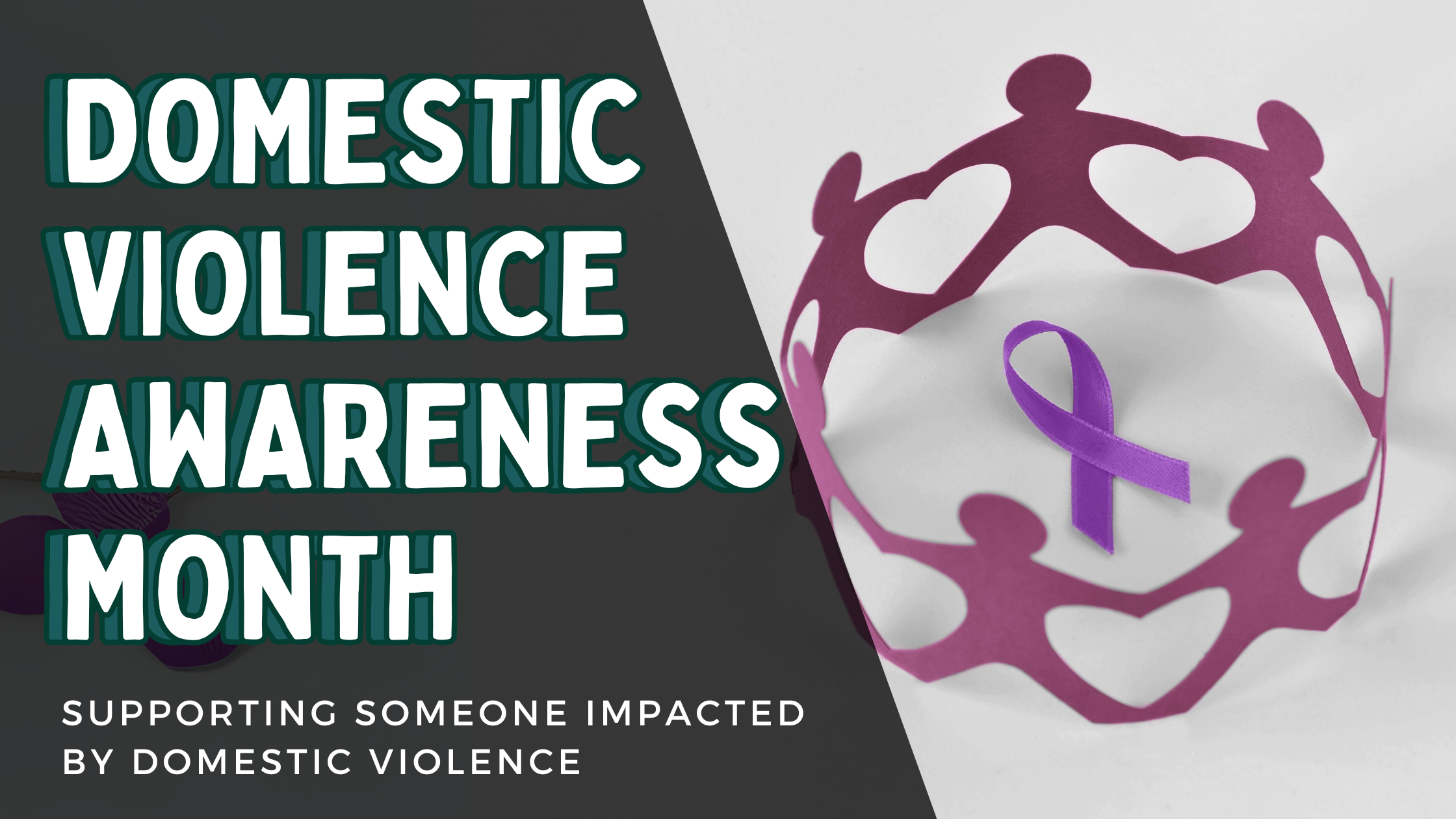Domestic Violence Awareness Month: Supporting Someone Impacted by Domestic Violence
October is Domestic Violence Awareness Month. I think domestic violence is something that doesn’t get talked about very much. Not in a real way. Beyond media tropes and commonly oversimplified perceptions, it’s dark, complex, and uncomfortable. Often, it’s a cycle of generational trauma that is difficult to break for both abusers and survivors.
Honestly, it’s part of my lived experience that I don’t talk about very much, and I wonder why. Maybe it’s because it’s uncomfortable, or that it happened so long ago. But I talk about uncomfortable parts of my past all the time, so that doesn’t track. Upon reflection, I think it’s because when I have told this part of my story in the past, I was dismissed.
I am not alone in this experience, and that is unacceptable.
The CDC states “Data from the National Intimate Partner and Sexual Violence Survey (NISVS) indicate that nearly 1 in 4 adult women (23%) and approximately 1 in 7 men (14%) in the U.S. report having experienced severe physical violence…from an intimate partner in their lifetime.” (1) Considering many cases of domestic violence go unreported, this issue impacts a significant number of people. It’s a safe bet that you or someone you know has been through a domestic violence situation at some point in their life.
Peer support has played a longstanding role in helping victims of domestic violence. Women who endured spousal abuse - and continued abuse by mental health systems, many times after being committed by the abuser - were among the pioneers of early mental health reform. (2)
It’s just as valuable today. Someone who has been there can model hope. When there’s no feasible way out in the present, hope is so important. And someone who has been through a similar situation probably won’t say, “Why don’t you just leave?” or “He’s always been nice to me,” or something else equally unhelpful.
So what does helpful support look like in these instances? Some of our amazing providers that support people in domestic violence situations agreed to share their experiences:
“I reached out to the local domestic violence org ( in eastern WI) and met with a volunteer weekly in random public locations where my abuser would never be. That’s how I learned about the cycle of abuse and types of abuse. I didn’t even know those were things.
Now, In my peer support work, I practice listening non judgementally, I believe them, remind them of their worth, validate their feelings (confusion/fear/depression as normal, respect their choices, help them build a support network, identify resources, engage them in things away from their abuser.
I also set boundaries for myself so I’m never around the abuser and I monitor myself for triggers if they come up.”
“I think it’s really important to meet them where they are at and actively listen. When someone opens up about their experience, they could be at any stage of processing or healing from their experience. Being able to listen is a really easy, yet powerful, skill to learn.
In my experience, asking how you can support them in that moment or asking if they need resources is more helpful than just spewing out suggestions or information upon listening to their situation. Their experiences are already a lot of hard emotions, and it can become even more overwhelming to some if that information is just laid at their feet.
Creating safe language and using accurate terminology is very effective to be able to talk about the situation without making the survivor feel less than or judged.
Maybe more so for the bystanders than the survivors; not all abuse is physical but we should treat emotional and psychological abuse with the same care.”
One last piece of guidance for supporting someone echoes another provider’s advice and it’s to believe them. When I experienced domestic violence, my voice was dismissed until I just stopped trying to be heard. Not being taken seriously is one reason why domestic violence is underreported.
Domestic violence is a ripple effect circumstance. When victims go unheard and abusers go unhealed, the cycle continues, but when we are truly supported and understood, the cycle breaks, and lives and generations are transformed.
Visit End Domestic Abuse Wisconsin https://www.endabusewi.org/get-help/ for a comprehensive guide to domestic violence resources in Wisconsin including region-specific and community-specific support.
1 Niolon, Phyllis Holditch, et al. Intimate Partner Violence Prevention Resource for Action. Atlanta, GA, Centers for Disease Control and Prevention, 2017. Pamphlet.
2 National Resource Center on Domestic Violence. "Peer Support and Peer Involvement." VAWnet, 2021, vawnet.org/sc/peer-support-and-peer-involvement. Accessed 14 Oct. 2024.


